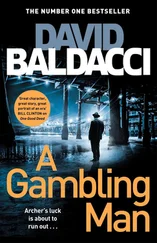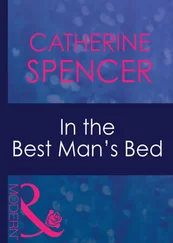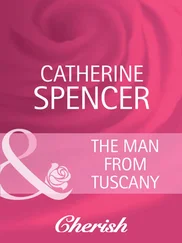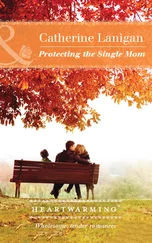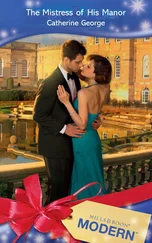He hesitated. Should he go to the front door or the back door? Damn it all, why not the front! Why not!
He went up the steps and pulled the bell.
The door was answered by a maid. She was wearing a starched apron over a black alpaca dress. The bib of the apron had a wide, stiff frill that continued over the straps on her shoulders. She had a starched cap on her head and the strings from it looked as stiff as the cap itself and were tied under her chin in a bow. She was evidently flustered and said, ‘Yes, yes. Who is it?’
‘I’m Mr Connor. Miss Kean told me to come. I’ve brought the takings.’
‘Oh! Oh!’ She looked from one side to the other, then said, ‘Well, you’d better come in.’ And she stood aside and let him pass her into the small lobby, then opened another door into a hall, which he noted immediately was as big as the kitchen at home.
‘Stay there,’ she said, ‘an’ I’ll tell her, that’s if she can come, the master’s had a turn. They’ve had to send for the doctor again. He’s right bad.’ She nodded at him, then made for the stairs that led from the hallway in a half spiral and disappeared from view.
He stood looking around him, frankly amazed at what he saw. To the right of the staircase was a side table with a lamp on it. He noted that it was oil, not gas. Yet they had gas outside. The soft light from it illuminated a large oil painting on the wall showing the head and shoulders of a man: he had a broad, flat face, and the high collar was wedged into the jowls below his chin; he had a white fringe of hair above his ears, the rest of his head was bald; his eyes were round and bright and seemed to be looking with stern condemnation at the visitor. Rory did not need to guess that this was an ancestor of Mr Kean, and also that the lamp was there as a sort of illuminated commemoration to do him honour.
A cabinet stood against the wall at the far side of the stairs. He had never seen the like of it before, not even in a picture. It was glass-fronted and made of yellowish wood picked out in gold; the legs were spindly with fancy cross-bars connecting the four of them. It had two shelves. The top one held figures, some single, some in groups; the lower shelf had glass goblets standing on it. From what he could see at this distance they were etched with paintings.
There were a number of doors going off all round the hall, and the thick red carpet he was standing on reached to the walls on all sides except where one door was deeply inset in an alcove and had a step down to it.
He felt his mouth closing when he heard the rustle of a gown on the stairs and saw Charlotte Kean coming down towards him. Her face wore a worried expression. She said immediately, ‘My father has taken a turn for the worse, we are very concerned. Will you come this way?’
Without a word he followed her down the step and through the door that was set in the alcove and found himself in an office, but an office very different from the one in Tangard Street. The room in a way was a pattern of the hall, thick carpet, highly polished desk, the top strewn with papers and ledgers. There were paintings on all the walls except that which was taken up with two long windows over which the curtains had not been drawn.
He watched her turn up the gas light; the mantle, encased in its fancy globe gave out a soft light and set the room in a warm glow.
He couldn’t understand the feeling he was experiencing. He didn’t know whether it was envy, admiration, or respect, that kind of grudging respect the symbols of wealth evoke. He only knew that the feeling was making him feel all arms and legs.
‘Sit down, Mr Connor.’
This was the second time in one day she had invited him to be seated.
He hesitated to take the leather chair that she had proffered; instead, looking down at the bag he had placed on the desk, he opened it for her and took out a number of smaller bags and the two pocket ledgers, which he placed before her, saying, ‘I’ve counted everything, it’s in order.’
She glanced up at him, saying, ‘Thank you.’ Then with her hand she indicated the chair again. And now he sat down and watched her as she emptied each bag and counted the money, then checked it against the books.
In the gaslight and with her expression troubled as it was, she looked different from what she had done in the stark grey light this morning, softer somehow.
The money counted, she returned the books to the bag; then rising, she stood looking at him for a moment before saying, ‘I’m sure I can trust you, Mr Connor, to see to things in the office until my father is better. I . . . I may not be able to get along. You see’—she waved her hand over the desk—’there is so much other business to see to. And he wants me with him all the time.’
‘Don’t worry about the office, miss, everything will be all right there. And . . . and Mr Taylor seems a steady enough man.’
‘Thank you, Mr Connor.’
‘I’m sorry about your father.’
‘I’m sure you are.’
He stared back into her face. There was that something in her tone. Another time he would have said to himself, Now how does she mean that?
He opened the door to let her pass out into the hall, and there she turned to him and asked, ‘Is it still raining?’
‘Yes. Yes, it was when I came in.’
‘You have a long walk home. Go into the kitchen and they will give you something to drink.’
Crumbs from the rich man’s table. Soup kitchens run by lady bountifuls. Clogs for the barefoot. Why was he thinking like this? She only meant to be kind, and he answered as if he thought she was. ‘Thank you, miss, but I’d rather get home.’
‘But you don’t look too well yourself, Mr Connor.’
‘I’m all right, miss. Thank you all the same. Good night, miss.’
‘Good night, Mr Connor.’
The maid appeared from the shadows and let him out. He walked down the steps and along the curving drive into the road, feeling like some beggar who had been given alms. He felt deflated, insignificant, sort of lost. It was that house.
He walked through the rain all the way back to the beginning of Westoe, down through Laygate and on to Tyne Dock, through the arches and the last long trek up Simonside Bank into the country and the cottage.
Opening the door, he staggered in and dropped into a chair without taking off his sodden coat, and he made no protest when Lizzie tugged his boots from his feet while Ruth loosened his scarf and coat and held him up while she pulled them from him. He had no need to pretend tonight that he was ill, at least physically, for the first day’s work had taken it out of him, and the trail back from Westoe had been the last straw.
When later in the evening Jimmy, by way of comfort, whispered to him, ‘When we go to the yard it’ll be easier for you, you could cut from the office to the boatyard in five minutes,’ he nodded at him while at the same time thinking, not without scorn, The boatyard! With thirty-five pounds he could have got himself a mortgage on a decent house. Slowly it came to him the reason why he had allowed himself to become saddled with the boatyard. It wasn’t only because he wanted to kill two birds with one stone: marry Janie and give Jimmy something of his own to live and work for; it was because he wanted to get away from here, from the kitchen; and now from their concern for his mental state, which must be bad, so they thought, when he still wouldn’t go and see his best friend, and him in prison.
Only last night when he said good-bye to Janie the rooms over the boatyard had appeared to him like a haven. And later, as he lay awake staring into the blackness listening to Jimmy’s untroubled breathing, he had thought, Once we get there, once I’m married, I’ll see it all differently. Then like a child and with no semblance of Rory Connor, he had buried his face in the pillow and cried from deep within him, ‘I’ll make it up to him when he comes out. I’ll make him understand. He’ll see I could do nothing about it at the time ’cos I was too bad. He’ll understand. Being John George, he’ll understand. And I’ll make it up to him, I will. I will.’
Читать дальше
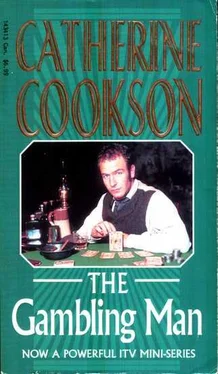
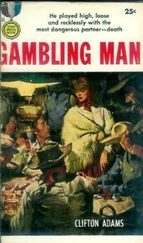
![Дэвид Балдаччи - A Gambling Man [calibre]](/books/384314/devid-baldachchi-a-gambling-man-calibre-thumb.webp)
